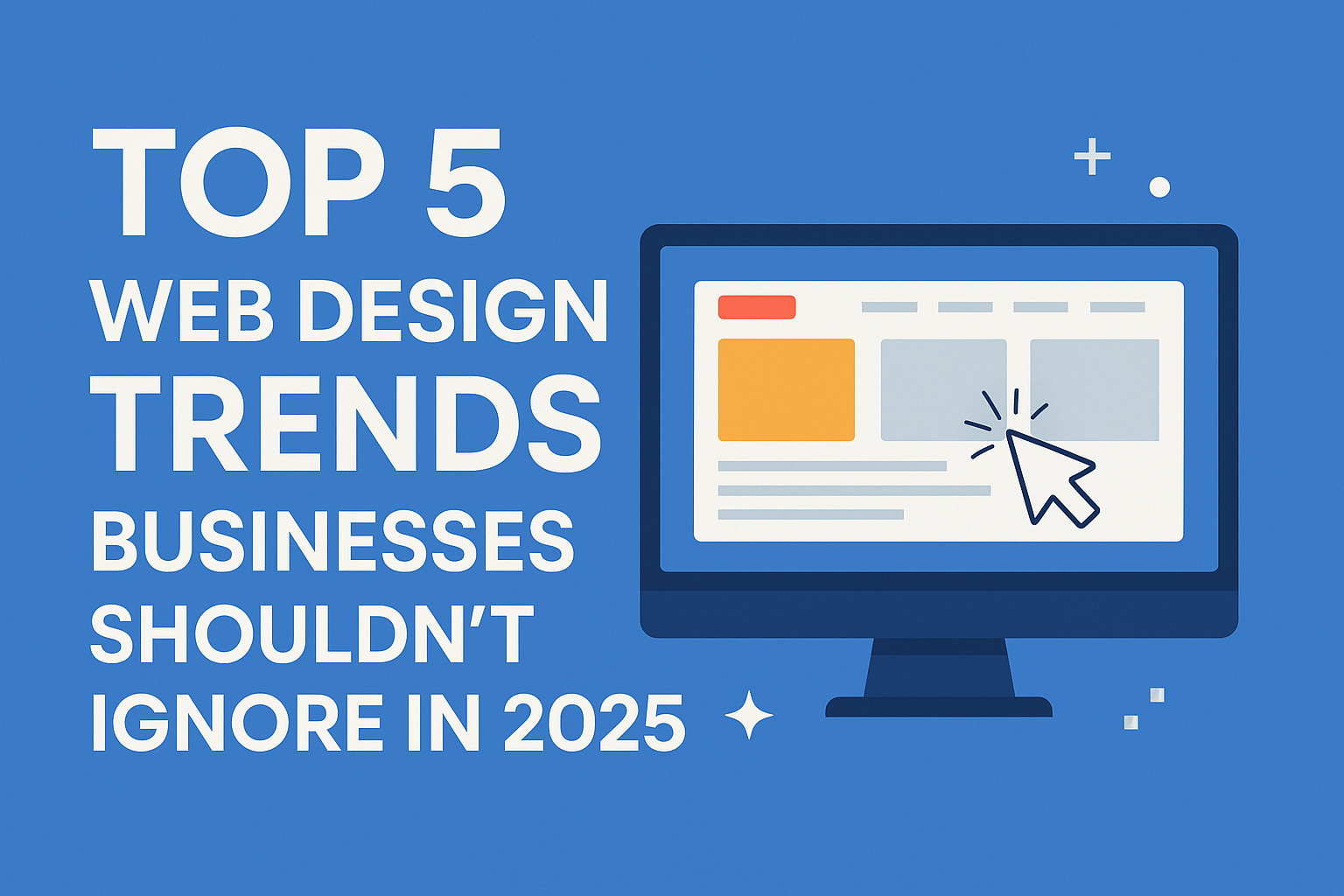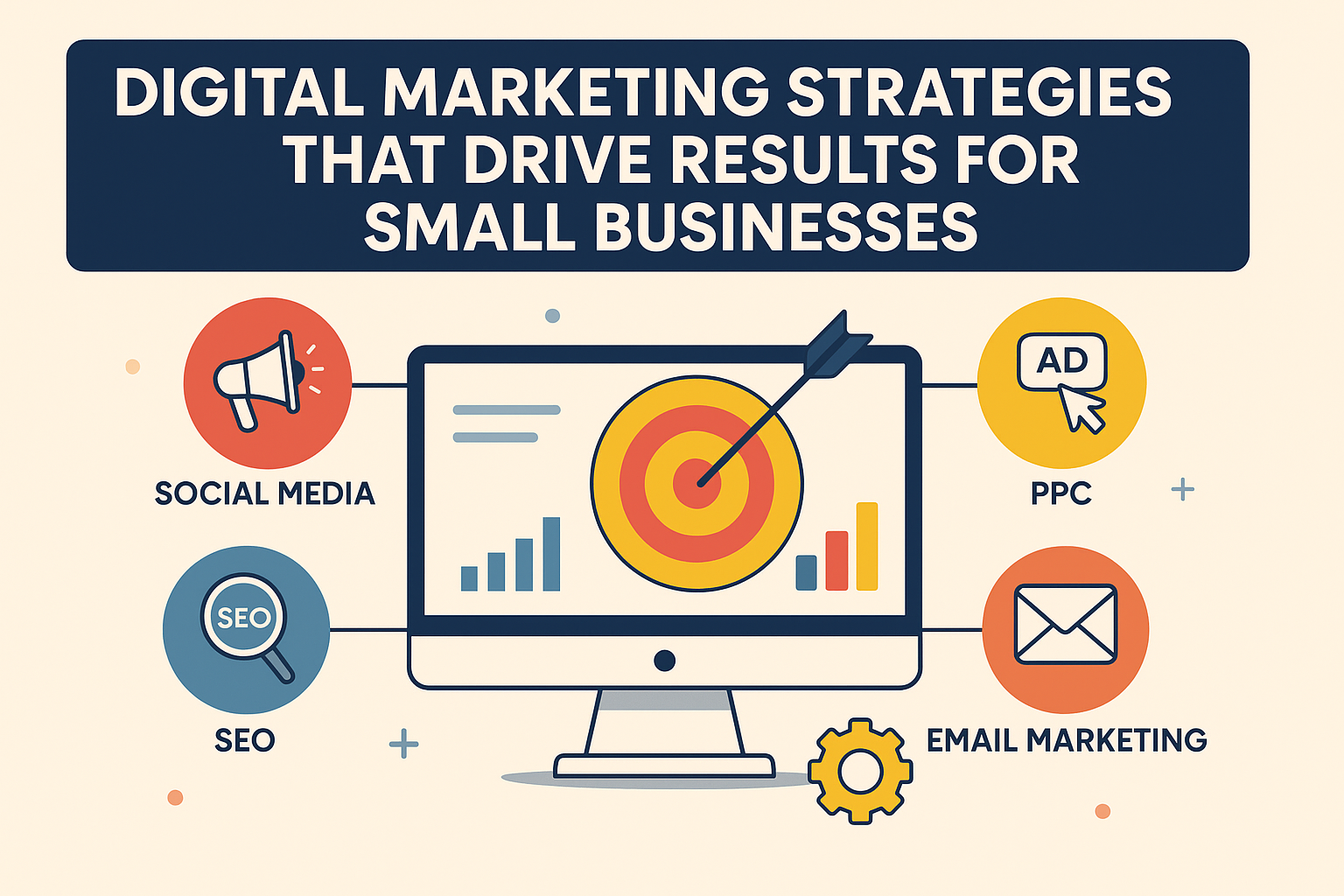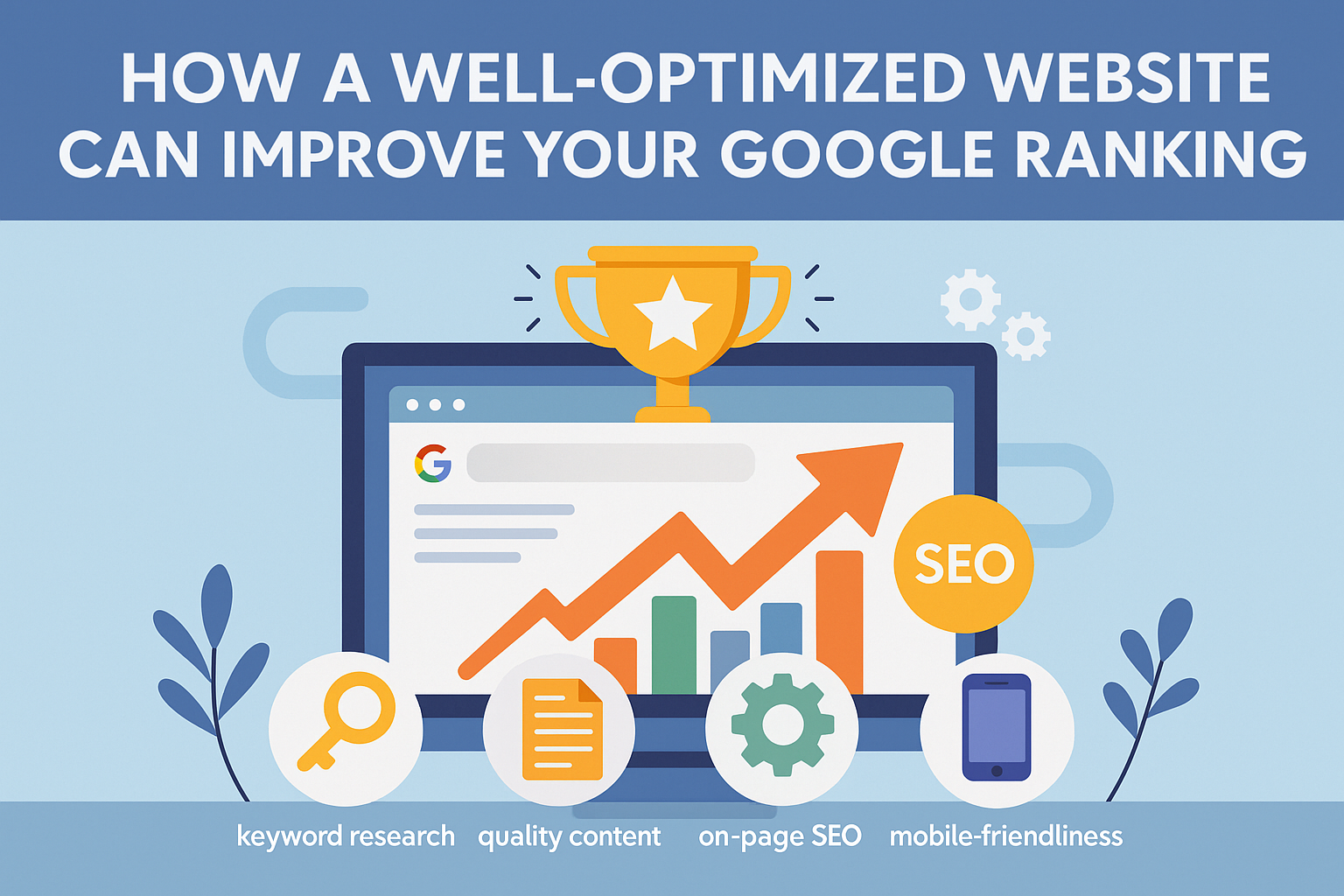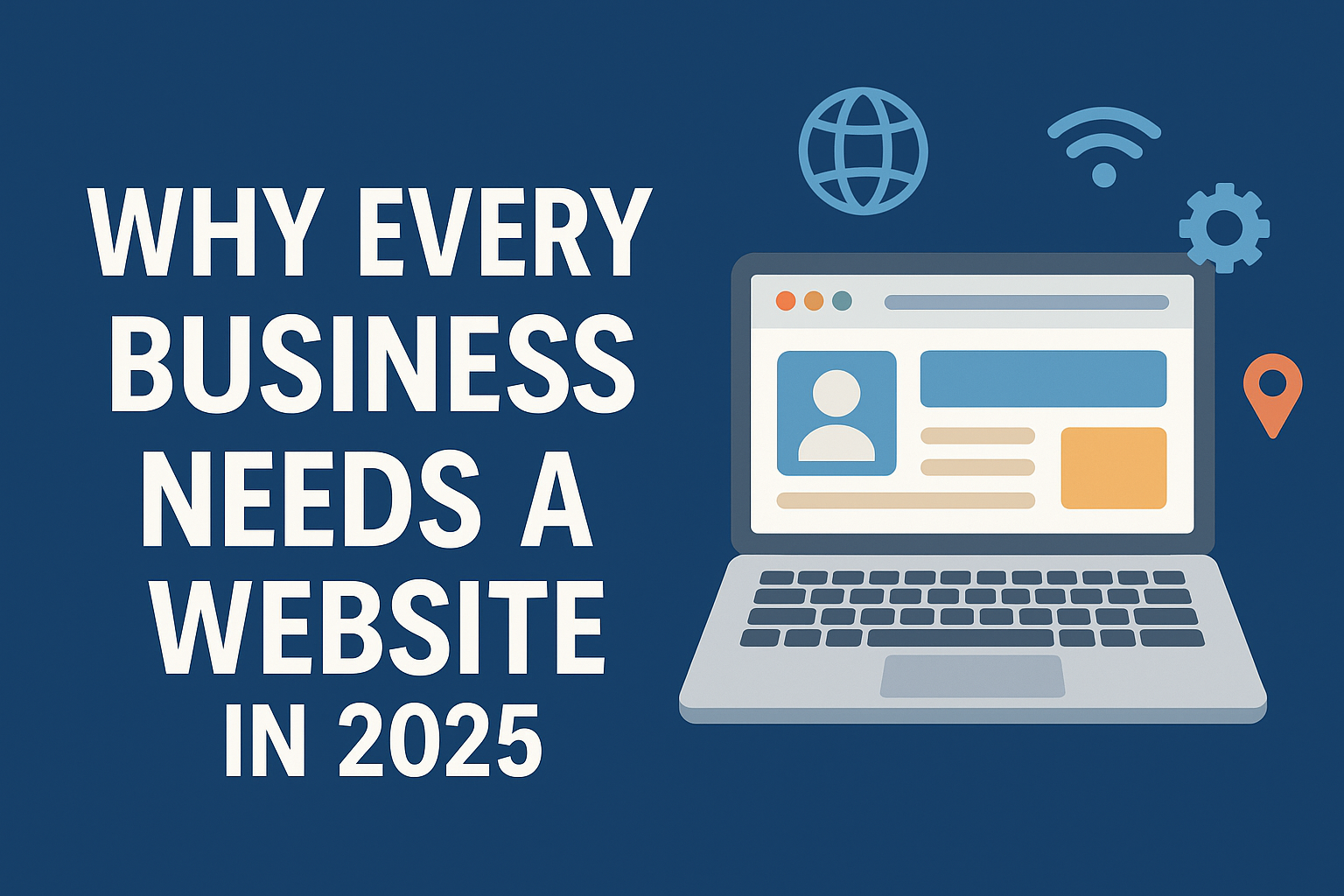- By Super Admin
- July 7, 2025
- Digital Marketing
How a Well-Optimized Website Can Improve Your Google Ranking
In today’s digital-first world, simply having a website is not enough. If your website doesn’t appear on the first page of Google, it’s as good as invisible. That’s why website optimization isn’t just about speed or design—it’s about improving your Google ranking and making your business discoverable to the right audience.
At Stancord Consultancy Services Pvt. Ltd., we help businesses create high-performance websites that are not only beautiful but also rank well on search engines. In this blog, we’ll explain how website optimization affects your Google ranking—and what you can do about it.
✅ Why Google Ranking Matters
Did you know that over 90% of searchers never go past the first page of Google? That means if your site ranks #8 or #18, you’re likely missing out on huge potential traffic.
Ranking higher brings:
- More organic (free) traffic
- More leads and conversions
- Higher brand authority and trust
- Lower dependency on ads
Let’s break down the website elements that directly impact your Google ranking—and how to optimize them effectively.
🔹 1. Page Speed and Performance
Why it matters:
Google uses page speed as a ranking factor, especially for mobile devices. A slow website frustrates users and increases bounce rates (when users leave without interacting), signaling Google that your site may not be worth ranking high.
Optimization tips:
- Compress images (use WebP format)
- Use a fast, reliable hosting provider
- Minimize JavaScript and CSS files
- Enable browser caching and lazy loading
Pro tip:
Use tools like Google PageSpeed Insights or GTmetrix to analyze and improve load speed. Aim for a load time under 3 seconds.
🔹 2. Mobile Responsiveness
Why it matters:
Over 60% of web traffic in 2025 comes from mobile devices. Google now uses mobile-first indexing, meaning it evaluates your site’s mobile version for ranking.
Optimization tips:
- Use responsive design (auto-adjusts layout for mobile screens)
- Make sure buttons and text are touch-friendly
- Avoid pop-ups that block the entire screen
Pro tip:
Test your site on various devices and use the Google Mobile-Friendly Test tool.
🔹 3. Clean, SEO-Friendly Code Structure
Why it matters:
Google bots "crawl" your site to understand its content. A well-structured website helps them index your pages accurately, improving ranking potential.
Optimization tips:
- Use semantic HTML (like <header>, <section>, <footer>)
- Create an XML sitemap and submit it to Google Search Console
- Ensure proper URL structure (e.g., example.com/services/web-design)
Pro tip:
Avoid unnecessary redirects and broken links. Regularly audit your site using SEO tools like Screaming Frog or Ahrefs.
🔹 4. High-Quality, Keyword-Rich Content
Why it matters:
Content is the heart of SEO. Google rewards sites that offer valuable, well-written content that matches search intent.
Optimization tips:
- Use relevant keywords naturally in titles, headings (H1–H3), and content
- Answer questions your target audience is asking
- Include internal links to other pages on your site
Pro tip:
Use long-tail keywords like “affordable digital marketing agency for small business” instead of just “digital marketing.”
🔹 5. User Experience (UX) Signals
Why it matters:
Google monitors how users interact with your site. If people stay longer, visit more pages, and engage more, it boosts your ranking.
UX improvement tips:
- Use clear navigation menus
- Include engaging CTAs (Call-To-Actions)
- Add multimedia (images, videos, icons) to make content more interactive
- Make sure your design looks clean, modern, and easy to read
Pro tip:
Improve Core Web Vitals, which measure:
- Loading performance (Largest Contentful Paint)
- Interactivity (First Input Delay)
- Visual stability (Cumulative Layout Shift)
These are direct ranking signals in 2025.
🔹 6. Secure Website with HTTPS
Why it matters:
Google favors secure websites. If your site isn’t using HTTPS (SSL certificate), users might see a warning in their browser—and your ranking could suffer.
What to do:
- Install an SSL certificate (often free with your hosting provider)
- Ensure all internal links use “https://” not “http://”
Pro tip:
Having HTTPS is not just a trust signal—it’s an SEO booster.
🔹 7. Schema Markup and Rich Snippets
Why it matters:
Schema markup is code you add to your website that helps Google better understand your content. It enables rich results like star ratings, FAQs, product info, and more.
Benefits:
- Makes your result stand out in search listings
- Improves click-through rate (CTR)
- Helps Google rank you more accurately
Pro tip:
Use tools like Google's Structured Data Markup Helper or Schema.org to implement it.
🔹 8. Fast and Reliable Hosting
Why it matters:
A poorly hosted website not only slows you down but also faces more downtime, which affects your SEO.
What to look for:
- 99.9% uptime guarantee
- SSD storage and optimized servers
- Scalable bandwidth
Pro tip:
Choose a hosting provider that supports CDN (Content Delivery Network) and is optimized for WordPress or your CMS of choice.
Final Thoughts
In 2025, your website is more than just an online brochure—it’s a powerful growth engine. And Google is the gatekeeper to that growth. If your site is slow, hard to navigate, or not optimized, you’re handing opportunities to your competitors.
By focusing on website optimization, you’re not just improving rankings—you’re creating a better experience for your visitors, leading to more leads, more sales, and stronger brand trust.
At Stancord Consultancy Services Pvt. Ltd., we help businesses build SEO-optimized websites that don’t just look good—they rank well and perform even better. Whether you need a full revamp or just a speed boost, we’ve got the right solution for your growth.
🚀 Ready to boost your Google ranking with a high-performance website?
👉 Contact us today for a free website audit and strategy session.




 +966-505764813
+966-505764813




